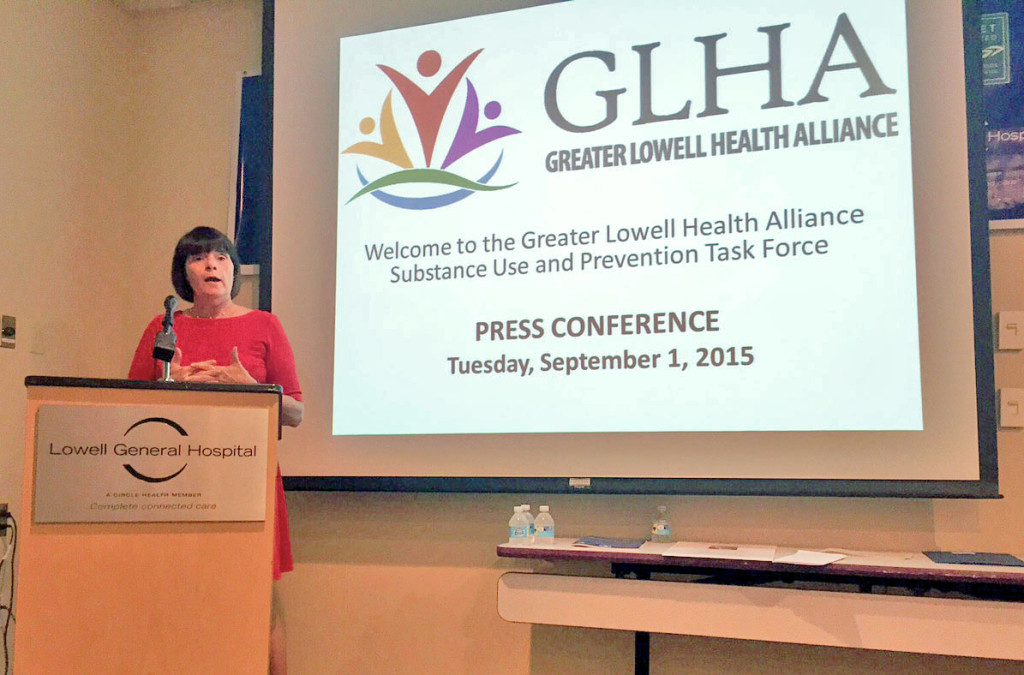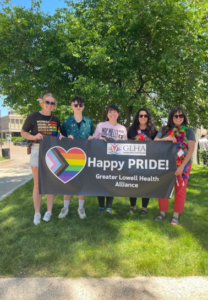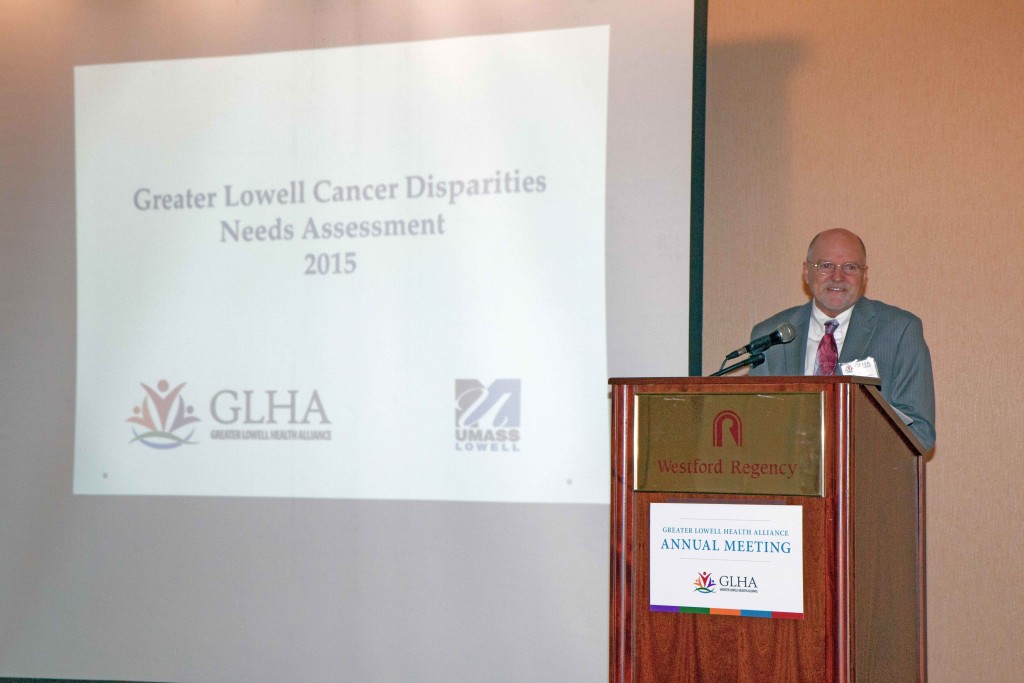
The Greater Lowell Health Alliance, in partnership with Middlesex Community College, kicked off National Recovery Month with a September 1 forum addressing the critical opiate crisis in Greater Lowell.
A group of nearly 100 members of the media and community gathered at Lowell General Hospital’s Saints Campus for the “Communities Join Forces to Prevent Substance Abuse” forum, featuring insights from GLHA Executive Director Kerrie D’Entremont, Lowell City Manager Kevin Murphy, Lowell Police Superintendent William Taylor, and Middlesex County District Attorney Marian T. Ryan. Terrence Downes, Executive Director of Middlesex Community College program on homeland security, served as moderator.
The weekend prior to the forum, two people in Lowell died of an opiate overdose. Four more were saved by Narcan administered by Lowell police, who were equipped with the life-saving drug in August.
These examples further intensified the spirit of collaboration and commitment of the leaders gathered to take action to stem the opiate crisis.
“We know this issue is blind to borders and is affecting each of our communities,” said D’Entremont.
In 2014, there were 145 drug-related deaths in Middlesex County, with 103 of them being attributed to heroin. As of Aug. 28, the county has already seen 131 drug-related deaths, with 99 of them attributed to heroin, according to Ryan.
“These numbers tell a very, very tragic tale, and one snippet gives you an idea of how many people are being affected by this epidemic,” she said.
September and October of 2015 are National Recovery Month & National Substance Abuse Prevention Month, respectively. The Substance Use and Prevention Task Force of the Greater Lowell Health Alliance is working to increase education, awareness and prevention efforts to help alleviate the crisis.
See the Substance Use and Prevention Task Force Calendar of Events.
Last year, the GLHA awarded $500,000 in grants and program assistance to the Greater Lowell Community, $200,000 of which was dedicated to substance abuse and prevention. On Tuesday, D’Entremont announced a new request for proposals for $50,000 in Community Health Initiatives Grants, which will go toward several public health priorities, including substance abuse.
“The GLHA is committed to working with our communities, and substance abuse is a top priority,” D’Entremont said. “This problem is affecting all our communities and the only way we’re going to win this battle is by working together.”
Ryan introduced three new initiatives her office will undertake to more more aggressive in preventing substance abuse:
- Working with mental health partners and police chiefs across the county to introduce a Trauma-Informed Response Program to immediately help children present during an overdose.
- A program that targets young women at access points where they are open to education, particularly before, during or just after pregnancy, in response to the rising number of women struggling with addiction.
- A new model of drug court that intervenes at the very beginning stages of addiction.
“We cannot do this alone, and that’s why this gathering is so important,” Ryan said. “It represents a recognition of that need we have for each other and the need we have to take what we have learned so far in this work, look forward and do the next phase of that work.”
Lowell City Manager Kevin Murphy praised the combined efforts of agencies across Lowell and Middlesex County for their commitment to combating opioid abuse.
“It’s only by all of us working together, not just in the City of Lowell but the Greater Lowell area,” Murphy said. “So I ask all of you to join with us in combatting this scourge in our society and rid substance abuse.”
Lowell Police Superintendent Bill Taylor also stressed the need to work together.
“Clearly we cannot do this alone,” Taylor said. “We need the police and the community to collaborate together. We need to be able to identify and eliminate this problem, and evidence shows that collaboration between police and civilians who live in our community has success in ridding our community of drugs.”
Read the coverage of the GLHA’s efforts to address the opiate crisis in the Boston Globe and the Lowell Sun and the Westford Eagle.



